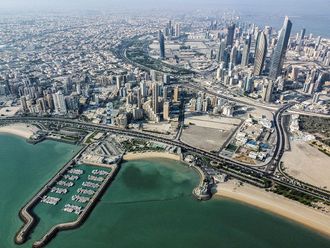New Delhi: India's Supreme Court on Wednesday postponed a ruling on Prime Minister Manmohan Singh's handling of a telecoms scandal that has undermined confidence in the administration and paralysed parliament.
Singh is not on trial but has faced allegations that he dragged his feet in ordering an investigation in the sale of telecom licenses at low prices that has led to the resignation of the telecoms minister, and which, according to an official watchdog audit, possibly lost the state $39 billion in revenues.
Singh's representative, the country's attorney general, defended the prime minister in court on Tuesday, saying all procedures had been followed in ordering a probe into the scandal.
"The Supreme Court has reserved its order," Attorney General and Singh's representative G.E. Vahanvati told reporters. "The court has asked for additional submissions on some issues it raised." He did not say when the court was likely to take any decision.
The prime minister will not personally face any sanctions but any negative conclusions given by the court could put serious pressure on Singh, known as one of India's most honest politicians, and calls for his resignation may mount.
Last week, the Supreme Court criticised Singh for his apparent delay in probing the widening scandal, potentially one of the biggest ever scandals to hit India.
Telecoms Minister Andimuthu Raja was forced to resign more than a week ago after his ministry was accused of selling licences and spectrum too cheaply in 2007-2008.
The scandal has now engulfed parliament as opposition parties have kept it shut since Nov. 9 over demands for a full parliamentary investigation into the disputes over sale of telecoms licences and radio airwaves worth billions of dollars.
Both houses of parliament were again adjourned to Thursday after opposition blocked proceedings from taking place.
The running of government is not affected by the closure of parliament and the government is not at risk of collapsing, but the passage of bills through the house has been affected.
Financial markets did not react to a lack of decision from the top court, which keeps the ruling Congress party and the opposition parties on tenterhooks.












